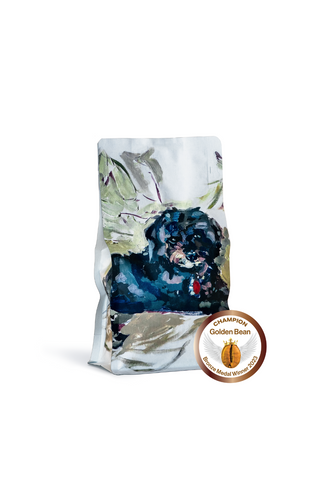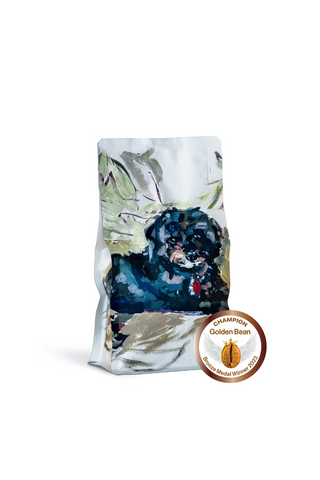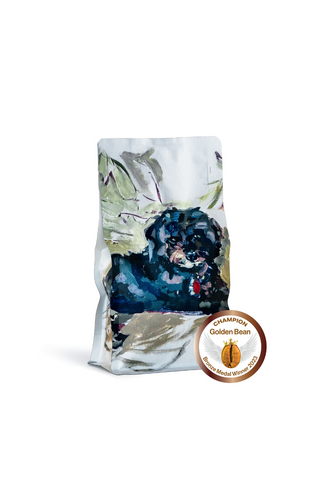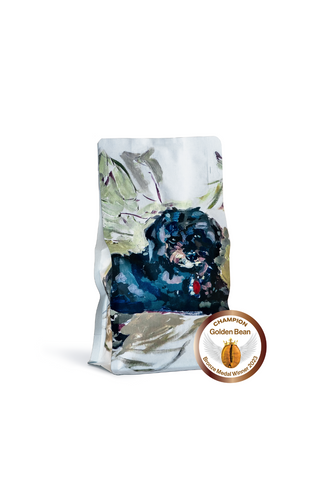
Deep Roots
It's no surprise that Ethiopia, with its deep roots in human civilization, planted even deeper roots in the world of specialty coffee, claiming to be the birthplace of this beloved beverage. Today, Ethiopian coffee continues to reveal the enduring connection between humanity and the land from which it came.
Table of Contents

Legend Has It
According to legend, the first beings to experience the effects of coffee were not humans, but goats. In the 9th century, Kaldi, a herder in the Kafa Mountains, observed his goats behaving unusually hyperactive, as if they had been injected with adrenaline. Intrigued, he decided to trail them and discovered the goats munching on unfamiliar red berries. Gathering some of these berries as evidence, Kaldi sought the advice of the Abbot of a nearby monastery. Initially unimpressed, the Abbot threw the coffee berries into a fire. However, this seemingly dismissive act inadvertently roasted the berries, releasing an aroma so tempting that the Abbot was compelled to taste the beans himself.

Buna Dabo Naw
Today, Ethiopia lives and breathes coffee, holding profound cultural and social significance. Known as “buna” in the local language, coffee symbolizes hospitality, respect, and community, and is celebrated through the traditional coffee ceremony known as “'buna dabo naw.”
Buna dabo naw, often performed to welcome guests into one's home or to mark special occasions such as births, weddings, or religious ceremonies, is a cherished Ethiopian tradition. The ceremony typically involves roasting green coffee beans over an open flame, grinding them with a mortar and pestle, and brewing them in a traditional clay pot called a “jebena.”

The Coffee Ceremony
During the ceremony, the host pours the freshly brewed coffee into small cups called "cini," which are passed around to each guest in a gesture of hospitality and respect. The coffee is often served with traditional snacks such as roasted barley or popcorn, creating a warm and inviting atmosphere for conversations and storytelling.
One of the most beautiful aspects of the buna dabo naw ceremony is the symbolism inherent in each part of the process. The act of roasting green coffee beans over a flame symbolizes transformation and renewal. The aroma of the roasting beans purifies the space and creates a welcoming environment, while the act of grinding the beans symbolizes unity and supporting one another in the community.
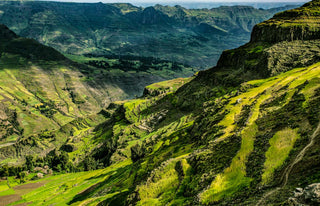
The Region
In addition to its rich cultural heritage and historical significance, Ethiopia is revered for its diverse and flavorful coffee offerings, all thanks to its exceptional terroir. Characterized by diverse microclimates, high altitudes, and fertile volcanic soils, Ethiopia yields high quality coffee beans and unique flavor profiles.

Major Coffee Growing Regions of Ethiopia
Situated in Ethiopia's southern region, Sidano is famed for its premium Arabica coffee. With its distinctive floral aroma, vibrant acidity, and famous bergamot undertones, Sidamo coffees are prized for their exceptional taste experience.
Yirgacheffe, nestled within the Sidamo region, has earned its own reputation for producing some of the world's most exquisite coffees. Yirgacheffe coffees are known for their floral and tea-like qualities, boasting a light body and high acidity that delights the senses with every sip.
Venturing to the eastern part of Ethiopia, Harrar stands out for its dry-processed (natural) coffees. These bold beans offer a winey quality with complex fruit and spice notes, making them a favorite for espresso blends due to their strong flavors and full body.

Regions Continued
In the southwest lies Jimma, the capital of the former Kingdom of Jimma, known for its versatility in coffee processing methods. Jimma produces coffees with a diverse range of flavors, from fruity and floral to spicy and herbal, depending on whether wet or dry processing techniques are employed.
Adding to Ethiopia's coffee-growing prowess is Guji, a relatively new coffee-producing region located just south of Sidamo. Guji coffees are revered for their floral, berry, and chocolate notes, accompanied by a complex acidity that keeps coffee aficionados coming back for more.
In conclusion
Ethiopia’s deep roots in coffee are ever present to this day. From the legend of Kaldi to the mountains of Sidamo, coffee remains a cherished part of Ethiopia’s cultural fabric, reflecting the bond between the land, the heart, the tastebuds.




